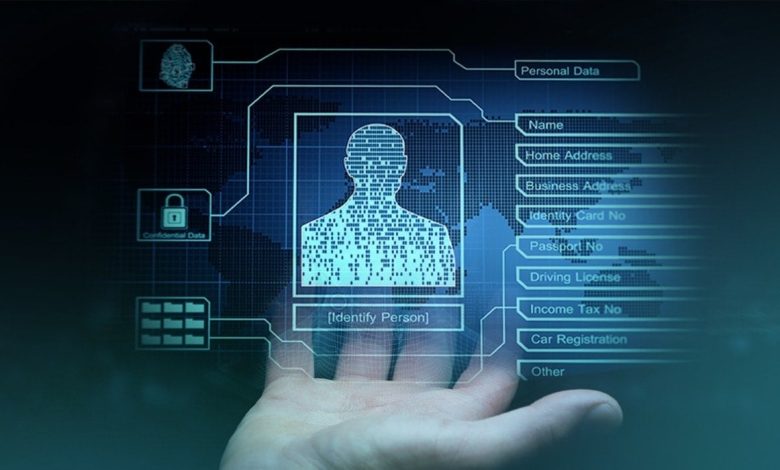How Blockchain Can Enhance Digital Identity Management

- Understanding the Basics of Blockchain Technology
- Challenges in Digital Identity Management
- Benefits of Using Blockchain for Identity Verification
- Exploring Decentralized Identity Solutions
- Security and Privacy Considerations in Blockchain-based Identity Management
- Future Trends in Digital Identity and Blockchain Integration
Understanding the Basics of Blockchain Technology
Blockchain technology is a decentralized, distributed ledger system that securely records transactions across a network of computers. Each transaction is verified by network participants, or nodes, before being added to a block of data. Once a block is filled with transactions, it is linked to the previous block, creating a chain of blocks – hence the name “blockchain.”
One of the key features of blockchain technology is its immutability. Once a block is added to the chain, it cannot be altered or deleted without the consensus of the majority of network participants. This makes blockchain a highly secure and tamper-proof system for storing data.
Blockchain technology also enables transparency and traceability of transactions. Each transaction is recorded on the blockchain, providing a complete history of all activities. This transparency can help enhance trust among users and reduce the risk of fraud or manipulation.
Another important aspect of blockchain technology is its ability to provide cryptographic security. Transactions on the blockchain are secured using advanced cryptographic techniques, making it extremely difficult for unauthorized parties to access or alter the data.
Overall, blockchain technology offers a promising solution for enhancing digital identity management. By leveraging its decentralized, secure, transparent, and traceable nature, blockchain can help improve the security and privacy of digital identities, reducing the risk of identity theft and fraud.
Challenges in Digital Identity Management
One of the main challenges in digital identity management is the issue of security. Traditional methods of managing digital identities are often vulnerable to cyber attacks and data breaches, putting individuals’ personal information at risk. Blockchain technology offers a solution to this problem by providing a secure and decentralized way to manage digital identities. By storing identity information on a distributed ledger that is encrypted and tamper-proof, blockchain can help prevent unauthorized access and protect sensitive data.
Another challenge in digital identity management is the lack of interoperability between different systems and platforms. This can make it difficult for individuals to access and control their identities across various online services and applications. Blockchain technology has the potential to address this issue by creating a unified and standardized system for managing digital identities. By using blockchain-based identity solutions, individuals can have a single digital identity that can be easily verified and used across multiple platforms.
Additionally, the issue of privacy is a significant concern in digital identity management. Many current identity management systems collect and store large amounts of personal data, raising questions about how this information is used and shared. Blockchain technology can help address these privacy concerns by giving individuals more control over their own data. With blockchain-based identity solutions, individuals can choose what information to share and who can access it, enhancing privacy and data protection.
Benefits of Using Blockchain for Identity Verification
Using blockchain for identity verification offers numerous benefits that can enhance digital identity management. One of the key advantages is the increased security it provides. By storing identity information in a decentralized and encrypted manner, blockchain makes it extremely difficult for hackers to access or manipulate the data. This helps in preventing identity theft and fraud, ensuring that individuals’ personal information remains safe and secure.
Another benefit of utilizing blockchain for identity verification is the improved privacy it offers. With blockchain, individuals have more control over their personal data and can choose what information to share and with whom. This transparency and consent mechanism help in building trust between users and service providers, leading to a more secure and efficient identity verification process.
Additionally, blockchain technology enables identity verification to be done in a faster and more cost-effective manner. By eliminating the need for intermediaries and streamlining the verification process, blockchain reduces the time and resources required for identity checks. This not only benefits businesses by saving them money but also improves the overall user experience by providing a seamless and efficient verification process.
Exploring Decentralized Identity Solutions
Exploring decentralized identity solutions is crucial in the realm of digital identity management. Blockchain technology offers a unique approach to enhancing security and privacy in managing digital identities. By leveraging blockchain’s decentralized nature, individuals can have more control over their personal information and how it is shared online.
One of the key benefits of decentralized identity solutions is the elimination of a single point of failure. Traditional identity management systems are vulnerable to data breaches and hacks, putting individuals’ sensitive information at risk. With blockchain-based solutions, data is distributed across a network of nodes, making it more secure and resilient to attacks.
Furthermore, decentralized identity solutions can streamline the identity verification process. Instead of relying on third-party intermediaries to verify identities, blockchain technology enables self-sovereign identities. This means individuals can prove who they are without having to disclose unnecessary personal information.
Overall, exploring decentralized identity solutions powered by blockchain technology can revolutionize the way we manage digital identities. By putting individuals in control of their own data and enhancing security measures, blockchain has the potential to reshape the digital identity landscape for the better.
Security and Privacy Considerations in Blockchain-based Identity Management
When it comes to **security** and **privacy** considerations in **blockchain**-based **identity management**, there are several key factors to keep in mind. **Blockchain** technology offers a high level of **security** due to its decentralized nature and **encryption** protocols. This means that **personal** **data** stored on the **blockchain** is **secure** from **cyber** **attacks** and **fraud**. Additionally, **blockchain** **transactions** are **immutable**, meaning that once **data** is recorded on the **blockchain**, it cannot be altered or deleted. This provides a **high** level of **integrity** and **trust** in the **identity** **management** process.
However, it is important to note that while **blockchain** offers **security**, it is not completely **immune** to **risks**. **Smart** contracts, which are **self**-executing contracts with the terms of the agreement between buyer and seller being directly written into lines of code, can be **vulnerable** to **bugs** and **exploits**. Additionally, **privacy** can be a concern on the **blockchain**, as all **transactions** are **public** and **transparent**. While **blockchain** **addresses** are **pseudonymous**, it is still possible to trace **transactions** back to **individuals**.
To address these **challenges**, **developers** are working on **privacy**-focused **blockchain** solutions that allow for **anonymous** **transactions** while still maintaining **security** and **integrity**. **Zero**-knowledge proofs, **ring** signatures, and **homomorphic** **encryption** are some of the techniques being used to enhance **privacy** on the **blockchain**. By implementing these **technologies**, **identity** **management** systems can offer a **high** level of **security** and **privacy** for **users**.
Future Trends in Digital Identity and Blockchain Integration
The future of digital identity management is closely intertwined with the integration of blockchain technology. As we look ahead, there are several key trends that are expected to shape the landscape of digital identity and blockchain integration:
- Increased Security: Blockchain technology offers a high level of security through its decentralized and immutable nature. This makes it an ideal solution for enhancing the security of digital identities, protecting them from fraud and unauthorized access.
- Enhanced Privacy: With blockchain, individuals have more control over their personal data and can choose what information to share with whom. This shift towards self-sovereign identity empowers users to manage their digital identities more securely and privately.
- Interoperability: The future of digital identity management lies in creating interoperable systems that can seamlessly communicate with each other. Blockchain technology can facilitate this by providing a standardized framework for verifying identities across different platforms.
- Decentralized Identity: Blockchain enables the creation of decentralized digital identities that are not tied to any central authority. This gives individuals more autonomy over their identities and reduces the risk of data breaches and identity theft.
- Regulatory Compliance: As regulations around data privacy and security continue to evolve, blockchain technology can help organizations stay compliant by providing a transparent and auditable record of identity-related transactions.
Overall, the integration of blockchain technology into digital identity management holds great promise for enhancing security, privacy, and interoperability in the digital world. By staying ahead of these trends, organizations can better protect their users’ identities and adapt to the changing regulatory landscape.



